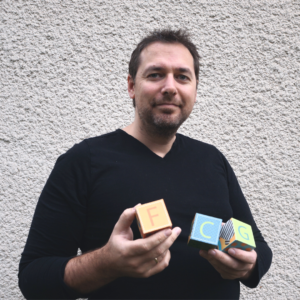Human languages have evolved many fascinating solutions to complex communicative problems through the use of words and grammatical structures. And they keep on evolving: language is an open system, a unique ability that brings infinite variety to the ways in which we communicate with others about our experiences in life. How is this possible? Can we understand this linguistic creativity? In my research, I try to answer these questions by developing powerful cognitive language technologies, which can be used to study open-ended and robust language processing, to explore innovative linguistic applications, and to function in large open collaborative communities.


